What is Hypertension?
Hypertension is a condition which is characterized by high blood pressure. Actually, when a person is found to have constantly high blood pressure readings, he/she is diagnosed to have hypertension. So, in one way, these terms can be utilized interchangeably. Hypertension is also known as a silent killer. It is the increased pressure of blood in the arteries.
Per AHA (American Heart Association), high blood pressure affects about 1 in 4 persons in US and almost a third of them do not know they have it. Per the Association, hypertension is a major health problem as even children are now being found to be hypertensive.
Types of Hypertension
In around 90% of the cases, the cause of hypertension is not known. In such a case where there is no underlying cause of hypertension, it is called as primary or essential hypertension. Also, there are cases when hypertension is caused by another disease (s); in such cases, it is known as secondary hypertension.
Causes of Hypertension
Some of common causes of hypertension can be:
- Obesity
- Odd lifestyle
- Genetic factors
- Excessive consumption of alcohol
- Consumption of birth control pills
- Consumption of pain relievers
Other underlying causes can be:
- Kidney disorders
- Adrenal diseases
- Abnormal blood vessels
- Pre-eclampsia/eclampsia in pregnant women
- Thyroid disorders
- Other physical problems
Risk Factors
While there is no known cause of hypertension, there are some factors that put you at risk of developing it. The first and the foremost factor is your age - the older you are, the greater are the chances of you developing high blood pressure (hypertension). Weight of a person is also responsible to a great degree in developing hypertension. Being obese or overweight puts you at risk of developing hypertension. Next very important factor is race. While Africans and Americans have been found to be more prone to high blood pressure, Caucasians have been found to be quite stable in this case.
Another factor that can put you at risk of hypertension is heredity. If high blood pressure runs in your family, there are fair chances of you developing it, too. In addition to this, factors like smoking and consumption of alcohol have direct impact on blood pressure. People who smoke and drink excessively are at increased risk of developing hypertension. Also, excess of salt in your diet can put you in risky bracket to develop hypertension. Other factors that put you at risk of hypertension are sedentary lifestyle, pregnancy, oral contraceptives, etc.
Symptoms of Hypertension
In general, people can suffer from hypertension without even knowing it. Symptoms can vary on the degree of blood pressure - higher the blood pressure, more are the symptoms. As mentioned previously, high blood pressure can damage vital organs like heart, kidneys, blood vessels, etc., therefore, it is very important to look for symptoms of high blood pressure. Following are some of the symptoms that can indicate high blood pressure, and should be looked for:
- Frequent severe headaches
- Lightheadedness
- Flushing of the face
- Occasional tinnitus
- Frequent epistaxis
- Thumping in the chest region
Diagnosis
Finding out whether a person is hypertensive or not is quite simple. One just needs to have his/her blood pressure checked by a healthcare professional. Reading is given in two numbers - higher (systolic) and lower (diastolic) - one over the other. While systolic reading indicates the pressure while heart is beating and how hard it has to beat to get blood moving, the diastolic reading indicates the pressure when heart is at rest between beats. For adults, in general, reading of less than 140/90 (systolic/diastolic), is considered normal, but anything equal to or above this needs attention. Depending upon the pressure and its consistency, you physician can put you on appropriate blood pressure-lowering medications. One can also battle hypertension via exercise, diet, and lifestyle changes.
Home Remedies for Hypertension
Garlic
 Garlic has always had a strong connection with hypertension. Garlic is rich in compounds that can help in lowering the blood pressure. Garlic has always been known to be beneficial for heart health. It reduces the blood pressure and maintains its rhythm. In addition to all this, it provides relief from high blood pressure symptoms like dizziness, shortness of breath, headaches, burning eyes, etc. To reap its benefits, just pop in 2 to 3 cloves of garlic on a regular basis. In case one is not able to tolerate its smell, garlic capsules can also be used. Garlic can also be included in regular diet and food. It is one of the best home remedies to treat hypertension.
Garlic has always had a strong connection with hypertension. Garlic is rich in compounds that can help in lowering the blood pressure. Garlic has always been known to be beneficial for heart health. It reduces the blood pressure and maintains its rhythm. In addition to all this, it provides relief from high blood pressure symptoms like dizziness, shortness of breath, headaches, burning eyes, etc. To reap its benefits, just pop in 2 to 3 cloves of garlic on a regular basis. In case one is not able to tolerate its smell, garlic capsules can also be used. Garlic can also be included in regular diet and food. It is one of the best home remedies to treat hypertension.
Indian Gooseberry
 Indian gooseberry is also a highly effective remedy for hypertension. It is one of the richest sources of vitamin C and is highly beneficial for heart health. It can be included in regular diet or can be had in its raw form. Alternatively, fresh juice from Indian gooseberry can be taken mixed with honey. Regular intake can reduce blood pressure considerably and provide relief from hypertension.
Indian gooseberry is also a highly effective remedy for hypertension. It is one of the richest sources of vitamin C and is highly beneficial for heart health. It can be included in regular diet or can be had in its raw form. Alternatively, fresh juice from Indian gooseberry can be taken mixed with honey. Regular intake can reduce blood pressure considerably and provide relief from hypertension.
Lemon
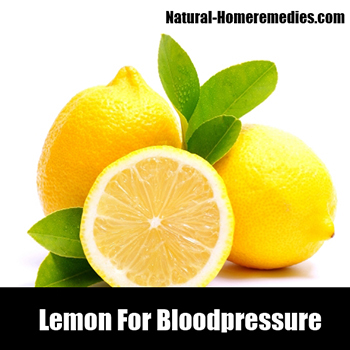 Again, lemon is one of the greatest sources of vitamin C, and is very beneficial for heart. Lemon is also a good source of vitamin P that maintains the resistance of cell and capillary walls to permeation; the vitamin prevents capillary delicateness. Even lemon peel can be dried and powdered for same benefits. One can have lemon juice on rich leafy salads or drink it in water. It is a great home remedy to get relief from hypertension.
Again, lemon is one of the greatest sources of vitamin C, and is very beneficial for heart. Lemon is also a good source of vitamin P that maintains the resistance of cell and capillary walls to permeation; the vitamin prevents capillary delicateness. Even lemon peel can be dried and powdered for same benefits. One can have lemon juice on rich leafy salads or drink it in water. It is a great home remedy to get relief from hypertension.
Grapefruit
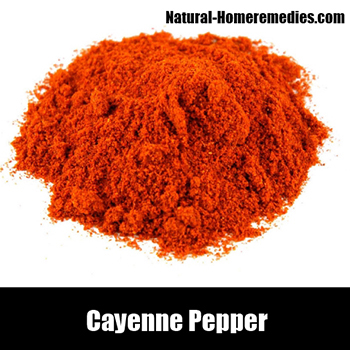 Grapefruit is also rich in vitamin P, which, again, maintains resistance of cells and capillary walls to permeating and prevents capillary delicateness. Grapefruit also keeps arteries healthy and prevents high blood pressure. Grapefruit can be included in diet or can be had as a whole.
Grapefruit is also rich in vitamin P, which, again, maintains resistance of cells and capillary walls to permeating and prevents capillary delicateness. Grapefruit also keeps arteries healthy and prevents high blood pressure. Grapefruit can be included in diet or can be had as a whole.
Watermelon
 Watermelon is house of different vitamins and nutrients, and water. It is one of the most effective fruits to bring down high blood pressure. Watermelon seeds contain a compound that dilates the blood vessels and lowers the blood pressure. Watermelon seeds are also very beneficial and can be had in dried, roasted from by hypertensive patients.
Watermelon is house of different vitamins and nutrients, and water. It is one of the most effective fruits to bring down high blood pressure. Watermelon seeds contain a compound that dilates the blood vessels and lowers the blood pressure. Watermelon seeds are also very beneficial and can be had in dried, roasted from by hypertensive patients.
Rice
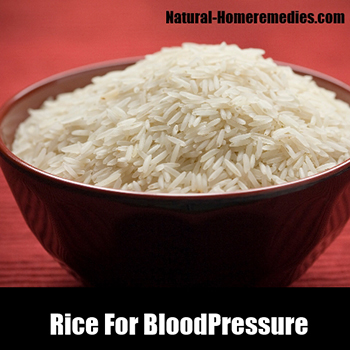 Rice is a low fat, low cholesterol, and low salt diet and can be ideal for hypertensive patients. Brown rice can be highly beneficial for patients with hypertension as it contains good amounts of calcium which relaxes the nervous system and provides relief from symptoms of high blood pressure. Hypertensive patients can include rice at least once in their daily routine.
Rice is a low fat, low cholesterol, and low salt diet and can be ideal for hypertensive patients. Brown rice can be highly beneficial for patients with hypertension as it contains good amounts of calcium which relaxes the nervous system and provides relief from symptoms of high blood pressure. Hypertensive patients can include rice at least once in their daily routine.
Potato
 Potatoes have been found to be very beneficial for patients with hypertension, especially potatoes boiled with peel. The peel prevents absorption of salts, making it a salt-free diet for patients. Also, potatoes are rich in calcium and magnesium, which makes it an excellent remedy to lower blood pressure.
Potatoes have been found to be very beneficial for patients with hypertension, especially potatoes boiled with peel. The peel prevents absorption of salts, making it a salt-free diet for patients. Also, potatoes are rich in calcium and magnesium, which makes it an excellent remedy to lower blood pressure.
Parsley
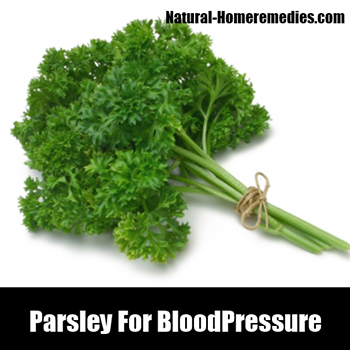 Parsley is rich in nutrients that help to maintain blood vessels healthy and protect the capillaries. Regular intake of parsley in liquid form (mixed with water) can strengthen the heart muscles. It is a good home remedy to treat hypertension.
Parsley is rich in nutrients that help to maintain blood vessels healthy and protect the capillaries. Regular intake of parsley in liquid form (mixed with water) can strengthen the heart muscles. It is a good home remedy to treat hypertension.
Vegetable Juices
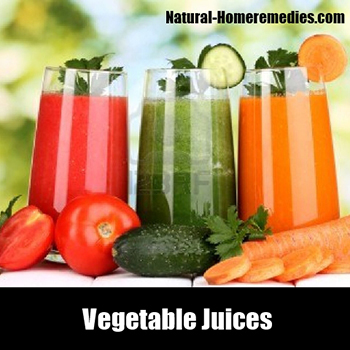 Vegetable juices are rich in essential vitamins, minerals, and nutrients. Vegetables juices, especially of carrot and spinach, can be highly effective in lowering the blood pressure. Carrot and spinach juices can be taken either singly or in combination on a regular basis to get significant relief from hypertension. In addition to relieving hypertension, these juices will also provide you essential vitamins and nutrients.
Vegetable juices are rich in essential vitamins, minerals, and nutrients. Vegetables juices, especially of carrot and spinach, can be highly effective in lowering the blood pressure. Carrot and spinach juices can be taken either singly or in combination on a regular basis to get significant relief from hypertension. In addition to relieving hypertension, these juices will also provide you essential vitamins and nutrients.
Rauwolfia
 Rauwolfia is a herb that is good for treatment of high blood pressure. The herb has direct effect on hypertension. Rauwolfia has properties to reduce blood pressure and strengthen the heart muscles. Rauwolfia can be had in powdered form for its best effect. Just consume half teaspoonful of Rauwolfia with water 2 to 3 times a day to get significant relief from hypertension.
Rauwolfia is a herb that is good for treatment of high blood pressure. The herb has direct effect on hypertension. Rauwolfia has properties to reduce blood pressure and strengthen the heart muscles. Rauwolfia can be had in powdered form for its best effect. Just consume half teaspoonful of Rauwolfia with water 2 to 3 times a day to get significant relief from hypertension.
Bananas
 Banana has been found to be helpful in reducing blood pressure; it is so because banana is a rich source of potassium. On an average, a person requires 3 to 4 servings of potassium-rich vegetables and fruits on a daily basis. Consume 3 to 4 bananas in any form through the day on a regular basis to get relief from hypertension. If you do not like bananas, you can also try fruits like dried apricots, orange, raisins, currant, cantaloupe, baked sweet potatoes, or winter squash.
Banana has been found to be helpful in reducing blood pressure; it is so because banana is a rich source of potassium. On an average, a person requires 3 to 4 servings of potassium-rich vegetables and fruits on a daily basis. Consume 3 to 4 bananas in any form through the day on a regular basis to get relief from hypertension. If you do not like bananas, you can also try fruits like dried apricots, orange, raisins, currant, cantaloupe, baked sweet potatoes, or winter squash.
Fortified Breads
 Fortified breads, cereals, beans, asparagus, and brussels sprouts are rich in vitamin B folate. Folate helps reduce the levels of a substance called homocysteine, which is responsible to reduce stretchability of arteries. Stiff arteries require the heart to pump blood more strongly, making it fatigued and weak. Therefore, it is advised to consumed fortified breads and cereals on a regular basis to have good amount of vitamin B folate in your body.
Fortified breads, cereals, beans, asparagus, and brussels sprouts are rich in vitamin B folate. Folate helps reduce the levels of a substance called homocysteine, which is responsible to reduce stretchability of arteries. Stiff arteries require the heart to pump blood more strongly, making it fatigued and weak. Therefore, it is advised to consumed fortified breads and cereals on a regular basis to have good amount of vitamin B folate in your body.
Polyunsaturated Oils
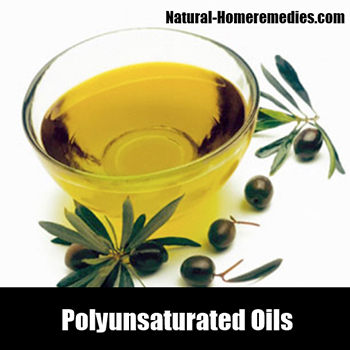 Switch to polyunsaturated oils, like canola, mustard seed, or safflower oil; it can make a huge difference in blood pressure readings. In addition to lowering the average blood pressure, these oils also help to reduce cholesterol. Just cook all your food in aforementioned oils and see the results in a couple of months.
Switch to polyunsaturated oils, like canola, mustard seed, or safflower oil; it can make a huge difference in blood pressure readings. In addition to lowering the average blood pressure, these oils also help to reduce cholesterol. Just cook all your food in aforementioned oils and see the results in a couple of months.
Broccoli
 Broccoli is high in dietary fiber and vitamin A. It has also been known to reduce blood pressure and strengthen the heart. Consume broccoli in any form on a regular basis to have a stable and within-normal-limits blood pressure.
Broccoli is high in dietary fiber and vitamin A. It has also been known to reduce blood pressure and strengthen the heart. Consume broccoli in any form on a regular basis to have a stable and within-normal-limits blood pressure.
Celery
 Celery is rich in 3-N-butylphthalide - a compound that helps lower the blood pressure and strengthen the heart. This phytochemical is not found in other common vegetables. Celery has also been found to reduce stress hormones that constrict blood vessels. Therefore, regular intake of celery, in any form, can prove to be beneficial in providing relief from hypertension and mental stress.
Celery is rich in 3-N-butylphthalide - a compound that helps lower the blood pressure and strengthen the heart. This phytochemical is not found in other common vegetables. Celery has also been found to reduce stress hormones that constrict blood vessels. Therefore, regular intake of celery, in any form, can prove to be beneficial in providing relief from hypertension and mental stress.
Milk
 Milk and low-fat yogurt help a lot more than to just strengthen bones. The calcium in these foods also plays a decent role in lowering blood pressure. Consume skimmed milk or low-fat yogurt on a regular basis to keep hypertension at bay. One can also go for green leafy vegetables that are high in calcium.
Milk and low-fat yogurt help a lot more than to just strengthen bones. The calcium in these foods also plays a decent role in lowering blood pressure. Consume skimmed milk or low-fat yogurt on a regular basis to keep hypertension at bay. One can also go for green leafy vegetables that are high in calcium.
Cayenne Pepper
 Cayenne pepper can prove to be very beneficial in treatment of mild hypertension. The spice smoothens the blood flow by preventing platelets from clumping together and accumulating in the blood. Just add cayenne pepper to your regular to get keep hypertension under control.
Cayenne pepper can prove to be very beneficial in treatment of mild hypertension. The spice smoothens the blood flow by preventing platelets from clumping together and accumulating in the blood. Just add cayenne pepper to your regular to get keep hypertension under control.
Preventive Measures
National Heart, Lung, and Blood Institute has designed an eating plan especially for hypertensive patients. The dietary plan contains less of saturated fat and cholesterol. It promotes vegetables, fruits, and low-fat dairy products. The dietary plan is known as DASH and can prevent help treat high blood pressure, if followed religiously. The eating plan was derived after a study known as Dietary Approaches to Stop Hypertension. In addition to the above, the eating plain includes whole-grain products, poultry, fish, and nuts. It limits use of meat, sweets, sugary foods and beverages, and promotes diet rich in magnesium, calcium, potassium, and fiber. To follow a DASH eating plan, one needs to follow the points below:
Cut Back on Salt
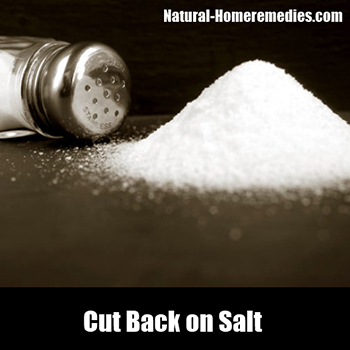 Reducing dietary sodium and salt helps lower the blood pressure. Some races like African-Americans along with elder people are highly sensitive to sodium and salt. Being sensitive means one has a tendency to retain fluid if taken (salt) in excess. It can be due to defect in kidneys that they are not able to get rid of sodium. In this process, body tries to dilute sodium in blood by conserving fluids, which forces the blood vessels to work harder to circulate additional blood volume. Therefore, it is especially advised to keep a check on sodium and salt intake to keep control on high blood pressure.
Reducing dietary sodium and salt helps lower the blood pressure. Some races like African-Americans along with elder people are highly sensitive to sodium and salt. Being sensitive means one has a tendency to retain fluid if taken (salt) in excess. It can be due to defect in kidneys that they are not able to get rid of sodium. In this process, body tries to dilute sodium in blood by conserving fluids, which forces the blood vessels to work harder to circulate additional blood volume. Therefore, it is especially advised to keep a check on sodium and salt intake to keep control on high blood pressure.
Feed on Potassium
Some hypertensive patients take diuretics that cause loss of potassium. Therefore, such patients are advised to consume banana on a regular basis to recuperate the lost potassium. Prefer foods that are high in potassium, but do not run for supplementary potassium as too much of it can be dangerous for heart. Foods that are rich in potassium are bananas, potatoes, tomatoes, oranges, milk, etc.
Consume Calcium
 Calcium is required by heart to maintain proper rhythm. In addition to this, kidneys need calcium to regulate body's sodium-water balance. Studies have showed that calcium from natural foods helps lower the blood pressure. Supplementary calcium might not work in this case, though.
Calcium is required by heart to maintain proper rhythm. In addition to this, kidneys need calcium to regulate body's sodium-water balance. Studies have showed that calcium from natural foods helps lower the blood pressure. Supplementary calcium might not work in this case, though.
Choose Your Fat
Consume foods that are low in saturated fat, cholesterol, and total fat, like lean meat, fish, poultry, etc. Also include 2 to 3 servings of low-fat dairy foods in diet every day.
Other Preventive Measures include:
- Include plenty of fruits and vegetables in your diet. All in all, aim for 5 to 6 servings each day.
- Choose whole-grain foods, such as 100% whole-wheat or whole-grain bread, cereals, pasta, etc.
- Consume 4 to 5 servings per week of nuts, seeds, and dried beans.
- Prefer soft margarine, low-fat mayonnaise, light salad dressing, and unsaturated vegetable oils, like olive, corn, canola, safflower.
- Avoid sweet, sugary foods and beverages.
Other Treatment Methods for Hypertension
Blood pressure can be lowered by making some lifestyle changes. Of course, most of the changes are healthy choices, but can take a little time to acquaint to. Below are some lifestyle changes you can make to keep a check on high blood pressure:
Lose Weight
More you weight, higher are your chances of high blood pressure (hypertension). There it is always suggested to keep your body mass index (BMI) within normal limits. In fact, for each pound lost, you can cut down on blood pressure by two points. Furthermore, losing weight can also get you off your anti-hypertensive medication, completely. So, start it today!
Get a Home Blood Pressure Monitor
Getting a blood pressure monitor at home lets you have a strict check on it. It also lets you check on how much your remedies/medications are working on your blood pressure. Furthermore, if your pressure becomes dangerously high suddenly, you can get medical attention quickly. Also, it saves you money as you do not need to go to your doctor frequently for checkups.
Initiate and Stick to the Exercise Program
Exercise is always helpful. In addition to keeping you fit, it helps you keep a check on your blood pressure and lose weight. Exercising is very important if you have a sedentary lifestyle. Types of exercise that are likely to benefit your blood pressure are aerobic activities, such as walking, jogging, stair-climbing, aerobic dance, swimming, bicycling, tennis, skating, skiing, or anything else that elevates your pulse and sustains the elevation for at least 20 minutes. Avoid non-aerobic exercises like weightlifting, push-ups, chin-ups, etc., as these can be dangerous for hypertensive people. Consult your physician before getting into any kind of regime.
Take Your Medicine Religiously
However, unlike in other illnesses, you can get away with taking anti-hypertensive medicine, but the disease can continue to progress inside the body without giving any notice. It can continue to damage your eyes, kidneys, and strain your heart. Continue to take your medicines as prescribed by your physician. In case you feel the need to cut them down, ask your physician. By missing your medications, you surely do not want to experience the rebound phenomenon where your blood pressure may rise back to the level it initially used to be.
Learn to Relax
Try to stay as calm, cool, and contented as possible. Meditation, yoga, biofeedback, and massage can help a great deal to relax. Even taking out time for rest is an important component of treatment. People who are stressed release a lot of adrenaline into their systems, which can constrict the arterioles, causing them to go into spasm. This makes it difficult for the heart to push the blood through constricted arterioles, which ultimately results in high blood pressure.
Cut Down on Alcohol
Alcohol, if taken in excess, can cause a lot of damage than you can imagine. In fact, more than one alcoholic drink per day can cause a rise in blood pressure. Therefore, it is advised to cut down on regular consumption of alcohol to keep hypertension and high blood pressure at bay.
Quit Smoking
Nicotine in cigarette causes the blood pressure to rise to a level to put you at risk of a stroke. Also, cigarette smoking thickens the blood and increases its propensity to clot - a condition which can lead to cardiac arrest. A study showed that within two years of quitting smoking, your risk of developing coronary artery disease drops as low as that of a nonsmoker. Efforts to quit can be started by using a nicotine patch or nicotine gum.
Be Stable
To keep hypertension in control, it is very essential to be emotionally stable. Hypertensive patients should avoid overstraining, worrying, tension, anger, haste, and other similar feelings. A person should develop a calm, cheerful, and contented attitude.
